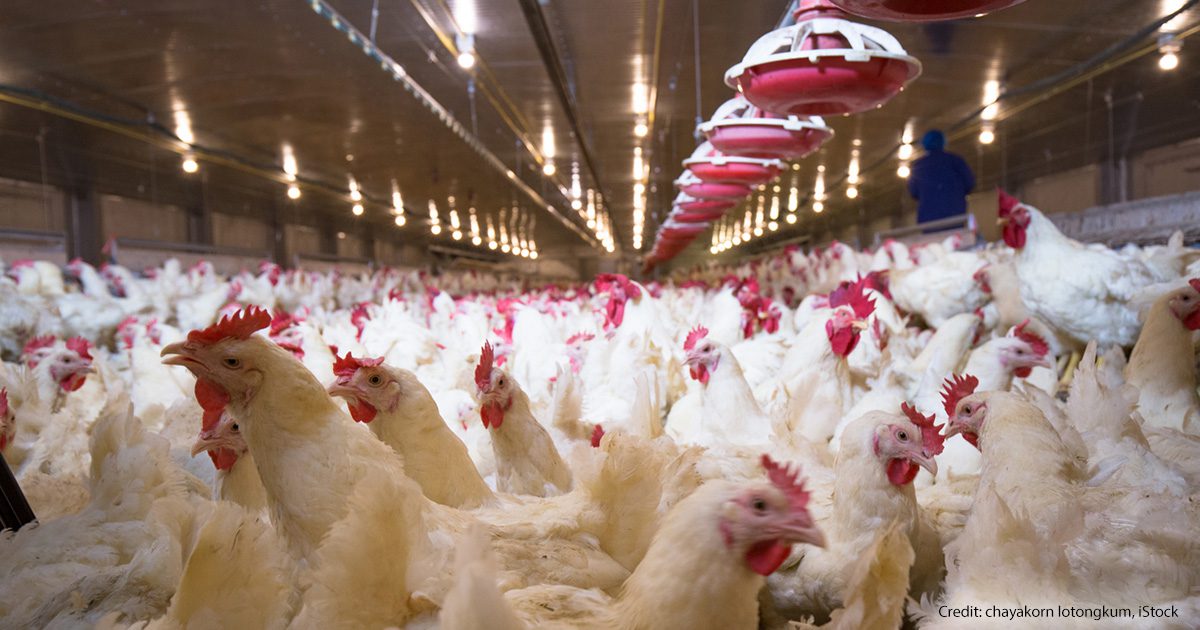
Apr 09, 2025 Farmed Animal Investments and Global Well-being
FAIRR, which stands for Farm Animal Investment Risk and Return, was established in 2015 by Jeremy Coller, whom Forbes Magazine recognizes as one of the most influential private equity managers. Over the past decade, Coller has transformed FAIRR into one of the largest investor groups globally, boasting over 400 members who collectively manage approximately $75 trillion in assets.
The FAIRR Initiative focuses on the animal agriculture industry, particularly the risks it poses to investors. These risks include the industry’s negative impacts on climate change, resource scarcity, biodiversity loss, food security, human health, and animal welfare. FAIRR reports that it “works with institutional investors to define the material risks and opportunities linked to intensive animal agriculture and provides investor members with the research, tools, and engagements necessary to integrate this information into their asset stewardship and investment decisions.”
FAIRR addresses several risks, including greenhouse gas emissions, deforestation, biodiversity loss, water scarcity, waste and pollution, antibiotic use, labor conditions, animal welfare, food safety, sustainability governance, and alternative proteins. Among its resources, FAIRR produces the Coller FAIRR Protein Producer Index, the only comprehensive assessment of the largest global animal protein companies. Now in its seventh edition, the Index ranks sixty of the largest listed global meat, dairy, and aquaculture companies based on ten environmental, social, and governance risks related to the food sector. There has been a steady decline in the number of companies rated as high risk in the Index, decreasing from 55% in 2022 to 45% in 2023. Additionally, a survey conducted by FAIRR revealed that 79% of participating investors use FAIRR’s research to inform their investment decisions.
FAIRR has produced several reports on the impact of the global food system on climate change. Approximately one-third of greenhouse gas emissions are generated by food production, with a little over half of those emissions resulting from the production of meat and dairy products. Additionally, their reports address the influence of animal agriculture on the development of antimicrobial resistance and the increasing global threats posed by bird flu. The most recent report, released in January 2025, highlighted the potential benefits of nature-based solutions in mitigating some of the risks associated with industrial animal agriculture.
Despite warnings from FAIRR and various pledges against supporting the harmful impacts of animal agriculture, development and private banks continue to invest heavily in industrial animal farming. Humane Society International released two reports (in 2013 and 2016) on the financing of factory farming, revealing that billions of dollars were being provided in loans for intensive animal agriculture projects.
The first report in 2013 highlighted how the European Bank for Reconstruction and Development (EBRD) supported factory farming projects that did not adhere to EU animal welfare laws and regulations. In response, the EBRD updated its policies in 2014 to ensure that all financed projects met or exceeded EU animal welfare standards.
However, subsequent reports from the NGO Feedback Global in 2020 and 2023 and World Animal Protection in 2022 have documented widespread investments in intensive animal agriculture projects. This continued support persists despite recommendations from the International Finance Corporation (IFC) of the World Bank Group in 2014, which urged adherence to scientific standards of animal welfare and stated that it would decline projects that did not align with these standards.
While many large financial institutions continue to invest heavily in intensive animal agriculture projects, Feedback Global’s latest report highlights a few institutions that have adopted policies against such investments. De Volksbank in the Netherlands manages €37 billion and Australian Ethical, with $5.4 billion under management, have established policies to avoid large-scale commercial animal agriculture investments. Additionally, it can be assumed that most of the approximately 400 member institutions of FAIRR will increasingly scrutinize their agricultural investment portfolios and related shareholdings. For instance, a Financial Times article from September 22, 2020, discusses the growing movement advocating for divestment from meat companies. It notes that investors like Arisaig Partners and Nordea Asset Management have already divested their meat and dairy companies’ holdings.
According to the 2024 annual report of the Jeremy Coller Foundation, the Trustees have identified four key program areas to pursue. These areas include educational initiatives highlighting the risks associated with animal agriculture, developing solutions related to the challenges and opportunities posed by industrial animal agriculture, support for the Coller School of Management, and funding for various educational projects.
While the Foundation and FAIRR initially focused on raising awareness about the risks of industrial animal agriculture, the current emphasis is on developing solutions to address unsustainable practices in intensive animal production. As part of this commitment, the Foundation recently donated £4 million to the London School of Economics to establish the Jeremy Coller Centre for Animal Sentience, which will be directed by Professor of Philosophy Jonathan Birch. According to Professor Birch, the Centre aims to use…
“the emerging science of animal minds to design better policies, laws, and ways of caring for other animals. Our work will be directed towards ethical moonshots: ambitious, long-term impact targets that, if we achieve them, will put Britain back at the leading edge of animal welfare globally and help restore the harmonious relationship with other species that we all want and need.”


